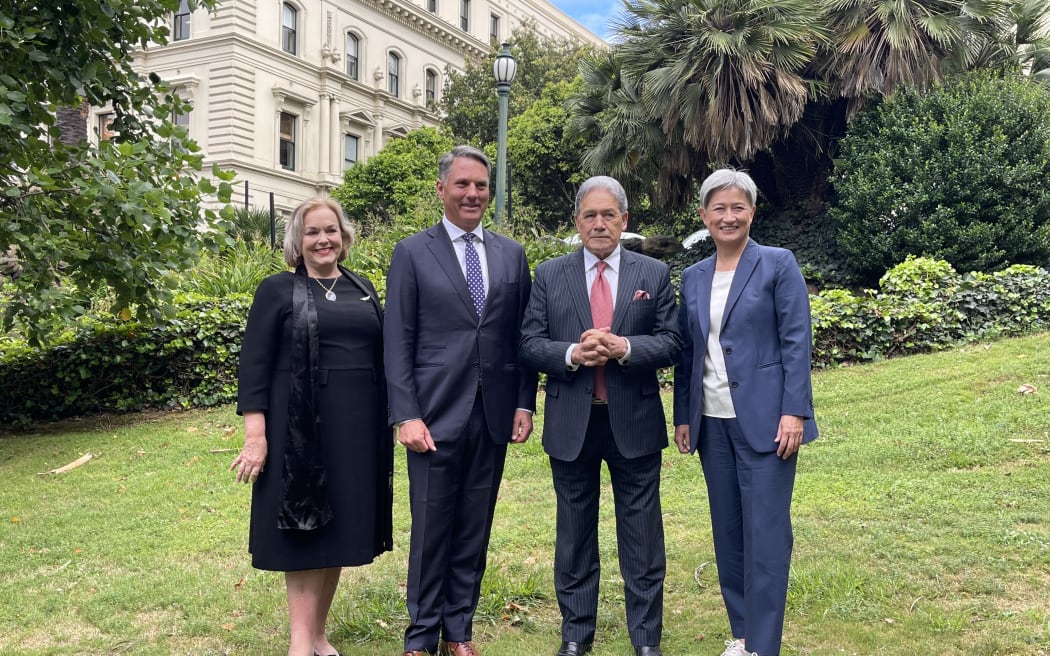
Defence Minister Judith Collins has been in Melbourne this week to meet with her Australian counterpart, discussing the prospect of joining the non-nuclear part of the deal. Photo: RNZ / Katie Scotcher
Joining the second pillar of the AUKUS agreement could blur the country's international brand, an Otago University International Relations professor says.
Australian officials will travel to New Zealand to brief the government on the advanced technology phase of AUKUS, the security partnership between Australia, the US and UK.
The deal will see Australia eventually supplied with nuclear-powered submarines.
Professor Robert Patman told Morning Report the nuclear nature of the agreement could look like a back-tracking of New Zealand's commitment to a nuclear-free country.
"While New Zealand may say it's staying absolutely true to its non-nuclear security approach, nevertheless, pillar two is part of an agreement in which nuclear powered submarines are being transferred to Australia," he said.
The second pillar of the agreement aims to rapidly develop advanced military technology including drones.
The UK has stressed the need for speed. The core AUKUS partners - the US, UK and Australia - have talked up the threat of China.
The New Zealand Defence Force has just done a multi-million-dollar deal for dozens of new, much more high-tech drones, some able to help artillery target the enemy.
Defence Minister Judith Collins has been in Melbourne this week to meet with her Australian counterpart, discussing the prospect of joining the non-nuclear part of the deal.
Collins said New Zealand still needed to work out what it could add to the agreement.
Patman said the move could be a diplomatic blow to the country.
"Our brand globally, since 1985, has been to champion non-nuclear security," he said.
"It would look like New Zealand is back-tracking..."
Patman said the move could look to other countries in the Indo-Pacific as though New Zealand was retreating to a tight alliance of english speaking countries.
"It's a momentus decision for this country going forward," he said.





